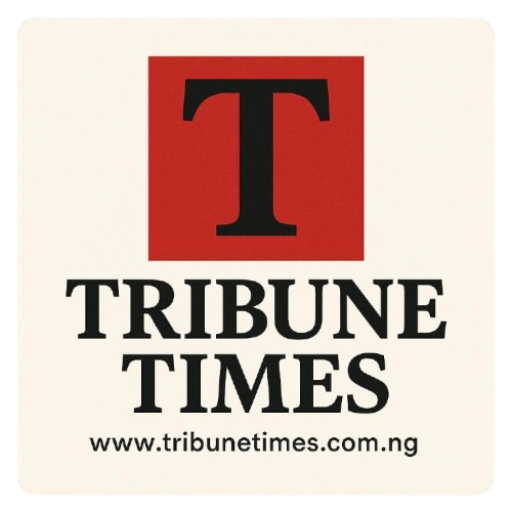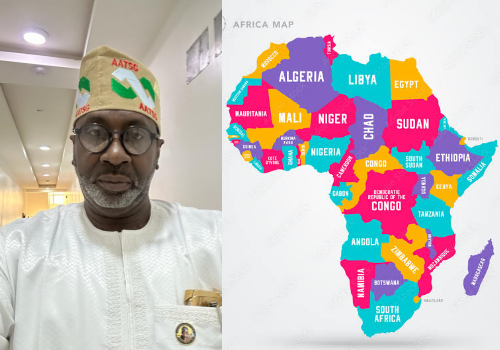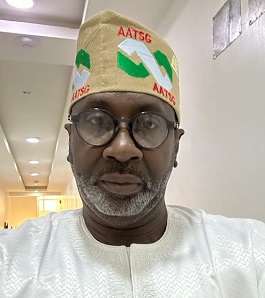Africa this is a wake up call time to fight for our true independence – Abayomi Odunowo.
As I reflect on the state of African leadership and the economic policies enforced by international financial institutions such as the IMF and World Bank, it has become painfully clear to me that African leaders are often forced to dance to the tune of these organizations in order to stay in power. Despite their good intentions, these leaders find themselves bound by the restrictive policies and conditions imposed by these institutions, which ultimately hinder the economic development of their countries.
The IMF and World Bank were originally established to provide financial assistance and support for developing countries, but over time their policies and practices have been criticized for their detrimental effects on the African continent. These institutions often prioritize repayment of debt over investing in infrastructure, education, and healthcare, perpetuating a cycle of poverty and underdevelopment in African countries.
Furthermore, the structural adjustment programs and conditional loans imposed by these institutions have compromised the sovereignty of African nations, leaving them vulnerable to exploitation and dependency on foreign aid. This has ultimately hindered the ability of African leaders to implement policies that would truly benefit the economic development of their people, as they are beholden to the agendas of the IMF and World Bank.
It is evident that African leaders are often forced to prioritize the interests of international financial institutions over the needs of their own people in order to remain in power. This dynamic perpetuates the continued exploitation of African countries’ resources and hinders their ability to achieve sustainable economic development.
It is a sad reality that the standard of living in the Western world is often sustained at the expense of the developing and impoverished countries of the world. This can be likened to economic slavery, as the wealth and resources of these countries are exploited and extracted to ensure the prosperity of the Western world. One such classic example is the situation in Niger, a West African country that has long struggled with poverty and economic instability.
Niger is a country rich in natural resources, including uranium, gold, and oil. Despite this wealth, the majority of its population lives in extreme poverty, with little access to basic necessities such as clean water, healthcare, and education. The exploitation of these resources by foreign companies and governments has left the people of Niger with little benefit, while the profits flow out of the country and into the hands of Western corporations and investors.
The cycle of poverty and exploitation in Niger is a clear example of how the standard of living of the Western world is sustained at the expense of developing nations. The economic system that perpetuates this inequality can be seen as a form of economic slavery, as the people of Niger are effectively trapped in a cycle of poverty and dependence on the very forces that exploit them.
Furthermore, any African country that refuses to play into this system is met with opposition from the Western world. This can come in the form of economic sanctions, political isolation, or even the assassination of leaders who stand up against the exploitation of their country’s resources. The fear of retaliation and the desire for economic stability often leave African leaders with little choice but to comply with the demands of the Western world, further perpetuating the cycle of economic slavery.
It is crucial for Africans to recognize and stand up against this system of economic slavery. The first step is to support and protect our leaders who are working towards the true benefit of their people. Many African leaders face immense pressure and opposition from both internal and external forces, making it difficult for them to truly work in the best interest of their citizens. By standing up for our leaders, and holding them accountable for their actions, we can help create a system that works towards the prosperity of the entire nation.
Additionally, it is important for African countries to come together and support each other in resisting economic exploitation. By working in unity, African nations can negotiate fair trade deals, demand greater control over their resources, and push for investment in infrastructure and development that truly benefits the people.
Education also plays a crucial role in breaking the cycle of economic slavery. By empowering the citizens of Niger and other developing nations with knowledge and understanding of their rights and the true value of their resources, they can advocate for fair treatment and greater benefit from their own wealth.
The situation in Niger is just one example of how the standard of living of the Western world is sustained at the expense of developing nations. This form of economic slavery perpetuates poverty and dependence, while also limiting the potential for true growth and development. It is crucial for Africans to stand up and work towards a system that values and respects their resources and leaders, and promotes true prosperity for all. Only then can the standard of living of the Western world be sustained at a manageable level, without exploiting and trapping others in economic slavery.
It is difficult to fathom that all African leaders are simply evil and wish to inflict pain upon their people. The widespread suffering and turmoil that exists across many African countries cannot solely be attributed to the misconduct and negligence of their leaders. There must be external factors and influences at play that are dictating and controlling the situation.
First and foremost, it is important to acknowledge that the history of colonialism and imperialism has had a profound impact on the political and economic landscape of many African nations. The legacy of exploitation and oppression left behind by European powers has undeniably contributed to the challenges and struggles that African leaders face today. The remnants of colonial rule, such as arbitrary borders, economic dependency, and social divisions, continue to hinder the development and progress of African countries.
Furthermore, the interference and meddling of foreign powers in African affairs cannot be overlooked. From political interference to economic exploitation, external influences have played a significant role in shaping the leadership and governance of African nations. The support and backing of corrupt and authoritarian leaders by global superpowers further perpetuates a cycle of instability and suffering for the people of Africa.
It is unjust and simplistic to attribute the suffering and mismanagement in African countries solely to the actions of their leaders. There is a complex web of historical, geopolitical, and economic factors at play that have contributed to the current state of affairs. It is imperative to consider these external influences when analyzing the leadership and governance in Africa.
The first line of action for the empowerment of African people is undeniably economic. As a collective, we must decide to only patronize products and services of African origin. By doing so, we can ensure that African entrepreneurs are empowered to increase their capacities and ultimately contribute to the growth and development of our continent. This conscious decision to support African businesses is crucial in stimulating economic growth and creating a sustainable foundation for future generations.
When we choose to prioritize African products and services, we are essentially investing in our own people and communities. This not only fosters a sense of pride and solidarity within our continent but also creates a ripple effect of economic empowerment. By supporting local businesses, we are contributing to the creation of jobs, the improvement of infrastructure, and the overall development of our economies. This lays the groundwork for a more robust and resilient economic landscape, ultimately leading to a brighter future for African nations.
Furthermore, this deliberate choice to patronize African products and services also sends a powerful message to the rest of the world. It demonstrates our commitment to self-sufficiency and our belief in the potential of our own resources and talents. This can also serve as a catalyst for other nations to invest in African businesses and industries, further accelerating our economic growth and global influence.
In addition to prioritizing African products and services, it is imperative that African governments invest heavily in education and new technologies. Education is the backbone of any successful society, and by providing accessible and high-quality education, we are equipping our people with the necessary skills and knowledge to drive innovation and progress. Moreover, by embracing new technologies, we can find innovative solutions to our internal challenges and create opportunities for sustainable growth.
By investing in education and technology, we are not only investing in the future generations of African leaders and innovators but also laying the groundwork for a knowledge-based economy that can compete on the global stage. This investment will also enable us to harness the potential of our youth and empower them to contribute to the development of our continent, ultimately leading to a more prosperous future for Africa.
Another crucial step in the economic empowerment of African nations is the introduction of a universal currency for trading within ourselves. This currency should have no ties to foreign currency and should be pitched against international currency. By creating a unified currency for African nations, we can streamline trade and commerce, reduce transaction costs, and mitigate currency-related risks.
The introduction of a universal currency will also foster greater economic integration among African nations, promoting collaboration and mutual growth. This will create a more conducive environment for investment and trade, ultimately leading to increased economic stability and prosperity across the continent.
In conclusion, the first line of action for economic empowerment of African people is to prioritize African products and services, invest in education and new technologies, and introduce a universal currency for trading within ourselves. These measures are essential in laying the foundation for sustained economic growth and prosperity, ultimately leading to a brighter future for African nations and its people. By taking these steps, we can pave the way for a more self-sufficient, innovative, and prosperous Africa.
Otunba Abdulfalil Abayomi Odunowo
National Chairman AATSG
18th February, 2024.





